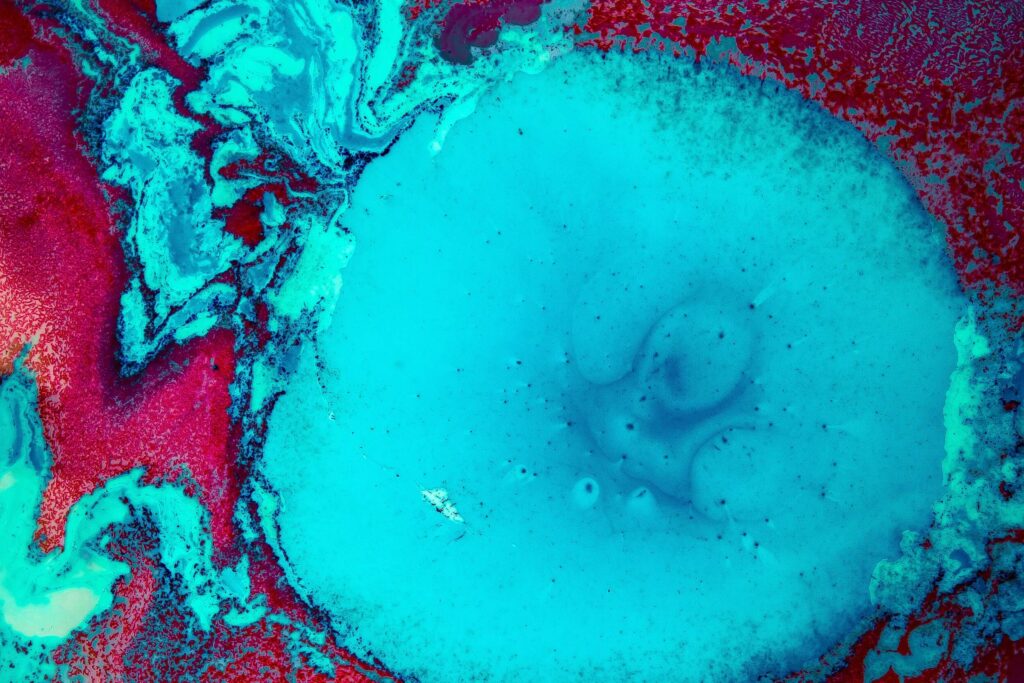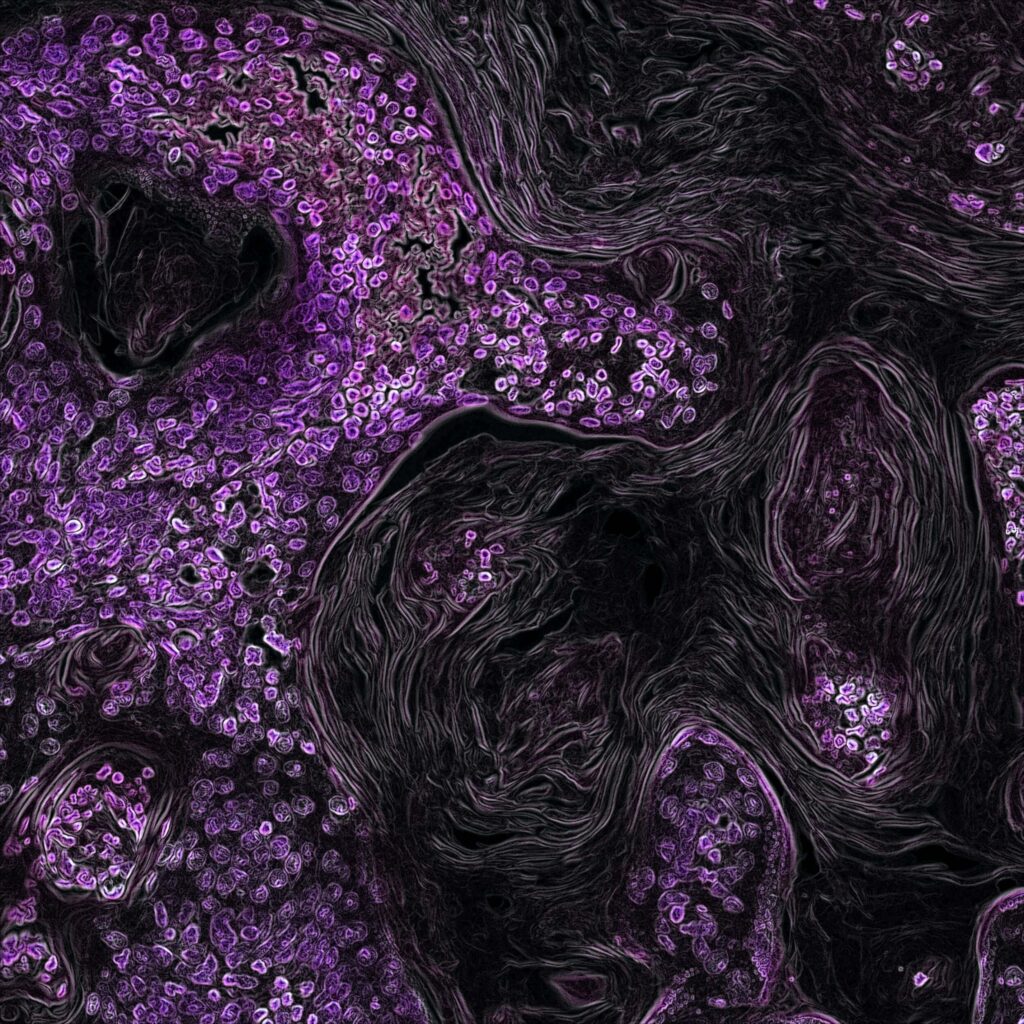The term autophagy comes from two Greek words, ‘auto’ and ‘phagy’, which mean ‘self’ and ‘feed on’ respectively. In a nutshell, it translates into our cells cannibalising their damaged parts in order to recycle the cellular debris and release basic building blocks and energy for consumption.
Autophagy is a basic physiological function in which our cells feed on themselves for various reasons.

Highlights
- Autophagy is a basic physiological function in which our cells feed on themselves for various reasons,
- Autophagy is a part of the metabolic process that enables cells to transform food into a form of energy that cells can use to increase and divide,
- The main benefit of autophagy is its support to the body in times of stress when the body is deficient in oxygen and nutrients.
Contrary to what it may sound like, autophagy is crucial for our health and wellness. It’s cellular housekeeping, much like garbage disposal and a recycling system for the body.
Autophagy can help protect against diseases like cancer, obesity, neurodegenerative disorders, autoimmune disorders, diabetes and many more. Scientists are still learning about all the ways autophagy impacts our health.
But what exactly happens during autophagy, and why is it important?
Your neurons will love this! 🧠 We have a weekly newsletter called the metablog, bringing you the latest research right to your inbox.
A primer on autophagy
A simplified definition of autophagy is the process that cleans up the body by disposing of and recycling unwanted cellular material, pathogens (disease-causing microorganisms), and other cellular waste.
Most eukaryotic cells (cells with a clearly defined nucleus) constantly undergo cellular degradation. As a result, damaged cells, cell components or organelles, and misfolded proteins crowd the insides of the cell.
The damaged cell components may also form due to certain diseases or pathogens. If cellular junk starts piling up in the cell, it can irreversibly transform the cell’s genes, rendering it impossible for the cell to regrow the structures it requires to survive and thrive.
Autophagy is a part of the metabolic process that enables cells to transform food into a form of energy that cells can use to increase and divide.
While some cells don’t last long in our body, two types of cells are for keeps – neurons (a fundamental part of the nervous system and the brain) and cardiomyocytes (which make up our heart muscle).
A human cell has three main structures, a nucleus, a semifluid substance called the cytoplasm, and a cellular membrane enclosing them.
The cytoplasm is made up of a watery jelly-like substance cytosol with suspended protein molecules and structures called organelles which are responsible for various functions of the cell.
The process of autophagy starts in the cytoplasm can be described as a series of five steps
- Initiation and Elongation: A membrane begins to form around the cellular debris, i.e., damaged cell organelles, proteins, and pathogens. This membrane is called a phagophore, and it keeps on increasing in length until it encloses all the debris.
- Maturation: Once the damaged material is completely enclosed, the newly formed double-membraned structure is called an autophagosome. It then signals lysosomes (organelles responsible for digestion in cells) to enter it and help disintegrate the debris inside.
- Fusion and Degradation: The digestive enzymes in the lysosome break down all the damaged materials and cellular debris into their basic building blocks, which are then used up by the cell for repair and normal functioning.
The lysosomal enzymes are typically inactive until they receive a signal, such as when the body encounters nutritional deficiency or disease-causing microbes. Once a distress signal is received, enzymes get activated to digest the cellular junk and replenish the cell’s need for nutrients and energy.
Benefits of Autophagy
The main benefit of autophagy is its support to the body in times of stress when the body is deficient in oxygen and nutrients.It keeps the body going by providing energy, basic building blocks, and nutrients.
It provides a substitute source of energy with its process of cellular recycling and regeneration. Autophagy is being extensively researched because of its link to anti-ageing and the possible treatment of certain diseases, especially cancer.
In fact, some researchers in the scientific community even go as far as to say that it’s the body’s way of doing a ‘Benjamin Button’ and turning back time and generating younger cells.
Here are some of the known benefits of autophagy based on the research.
- Anti-ageing: The link between autophagy and increased lifespan is well-researched. Since it relinquishes old and dead cells and helps support the healthy cells, research indicates that autophagy results in youthfulness and revitalization.
- Regulates Immunity and Inflammatory Response: Autophagy extensively supports and influences the immune cells and processing of various antigens. Research reveals that it removes toxic protein in the cells associated with neurodegenerative diseases and combats pathogens like bacteria, viruses and other infection-causing microorganisms. Thus, it helps the immune system, regulates the body’s inflammatory response, and reduces the risk of autoimmune diseases
- Cancer Prevention: In a cancer cell, genes mutate and the cell becomes defective. Research suggests that autophagy inhibits tumorigenesis (an intricate process that involves tumour initiation, promotion, progression to malignancy and metastasis) by suppressing cancer-cell survival and inducing cell death. In simpler words, it works as a tumour-suppressive mechanism. “This is how the body polices the cancer villains,” board-certified cardiologist Dr Luiza Petre explains. “Recognizing and destroying what went wrong and triggering the repairing mechanism does contribute to lowering the risk of cancer.” More research is underway to assess the role of autophagy in diseases such as cancer and neurodegenerative conditions.
- Weight Loss: In combination with lifestyle and diet changes, autophagy can be biohacked to lose weight sustainably by making your metabolic processes more efficient.
5. Promotes Memory and Cognition: Autophagy is linked to improved memory and better cognitive functioning.
6. Depression: Many studies have found an evident link between autophagy and depression. Although the mechanism isn’t clear yet, there’s evidence that antidepressants induce autophagy, among other changes, to treat depression.

Ways to Trigger Autophagy
In the case of fasting, at first, autophagy only digests unwanted cell components in the absence of nutrients. However, as the cells continue to starve for energy, autophagy in the fat cells begins, releasing free fatty acids.
As a result, ketone bodies are produced, which are used up by the body to create energy similar to the way the body uses glucose.
How long do you need to fast?
At least an 18-hour gap between meals is necessary to trigger autophagy in intermittent fasting or a restricted-calorie diet. Short-term fasting is enough to initiate the process; however, two to four days of fasting is necessary to drive autophagy benefits to the fullest.
Long-term calorie restriction (3 to 15 years) can boost the expression of autophagy genes, thereby leading to an increase in the baseline autophagic activity. It results in increased removal of faulty proteins and damaged cells from the body.
Interesting research by Alirezaei et al. found an increase in the number of autophagy cells after 24 hours of fasting, even in the neural cells. Perhaps that’s why many people experience mental clarity while fasting, as it’s a significant trigger of autophagy.
Keto Diets
The ketogenic diet is a high-fat diet that drastically restricts carbohydrates .It triggers a response in the body similar to fasting, i.e. putting the body into a state of ketosis. As explained above, when you’re in ketosis, your body burns stored fat rather than carbohydrates for energy.
The weight loss resulting from the keto diet is not only because ketosis is a strong trigger (16) for inducing autophagy, especially in the fat cells, but also because it promotes a feeling of satiety.
Exercise
Exercise is known to improve our physical and mental health, and one of the ways it does that is by triggering autophagy in the muscle cells. Exercise not only depletes energy but also deprives cells of oxygen and nutrients. At the same time, it causes cellular damage to skeletal tissue.
As a result, muscle cells double down on autophagy to replenish the cells with energy and nutrients for repair and recovery. Even a single bout of high-intensity exercise training has been found to increase the autophagic activity in the skeletal cells.
Another interesting study on a group of cyclists compared autophagy induced by high-intensity exercise with the nutritional state of the subjects. The study concluded that exercise intensity is a better way to trigger autophagy than diet modifications.
Foods That Induce Autophagy
Food sources rich in polyphenols and sulforaphane are known to induce autophagy. Both of these plant-based compounds are immensely beneficial for our health.
Polyphenols are known for their anti-inflammatory and antioxidant properties. Following are some of the foods abundant in polyphenols:
- Garlic,
- Mushrooms,
- Cinnamon,
- Berries,
- Nuts,
- Apples,
- Pomegranate,
- Onions,
- Turmeric,
- Beans,
- Red grapes,
- Cocoa.
Ginseng, coffee, and green tea also have high amounts of polyphenols.
Some research suggests that sulforaphane is a cancer-fighting compound that induces autophagy by regulating lysosomal functions. It is most commonly found in cruciferous vegetables like broccoli and cauliflower. Other good choices include kale, spinach, brussels sprouts, cabbage, and chard.
Foods That Curtail Autophagy
Processed foods and sugar-laden snacks are detrimental to autophagy since they are quick sources of glucose.
The presence of amino acids also inhibits autophagy, especially leucine, tyrosine and phenylalanine. Some foods abundant in these amino acids are dairy products, beans, legumes, meat, soy, fish, wheat germ, chicken, and turkey.
The presence of amino acids also inhibits autophagy, especially leucine, tyrosine and phenylalanine. Some foods abundant in these amino acids are dairy products, beans, legumes, meat, soy, fish, wheat germ, chicken, and turkey.
During a study, researchers found out that after a 36-hour fasting period, protein-rich beverages like soy-based drinks and leucine-rich whey-based drinks minimized autophagy. In contrast, carbohydrate-based beverages did not have much effect on autophagic activity.
Whether fatty acids inhibit autophagy or promote it depends on their saturation, carbon-chain length, and presence of cis or trans fat bonds. It was found that all trans-unsaturated fatty acids are typically unable to trigger an autophagic response. Moreover, in certain conditions, they can even curtail autophagy.
Following are some of the foods that contain trans fats:
- Cakes, cookies and pies,
- Shortening,
- Fried food,
- Margarine,
- Non-dairy coffee creamer.
In a nutshell, if you’re trying to benefit from autophagy, you should restrict trans fats, sugar-laden snacks and proteins in your diet.
Autophagy: Good or Bad?
Since autophagy provides recycling and cleaning services to the cells, its importance for the body’s normal functioning is undebatable. However, research on autophagy suggests that it acts as a double-edged sword in a diseased cell.
For example, autophagy attempts to clean the cell and act as an anti-disease agent in the early stage of the disease. However, as the disease progresses, autophagy may start to protect the cell and contribute to the progression of the disease.
Let’s look at some of the relevant studies; however, do note that autophagy is a relatively new field of research. Considerable research is required to investigate the relation between autophagy and diseases and to know whether autophagy can be used to diagnose or treat the diseases.
- Anticancer Therapy: It’s natural for autophagy to dispose of abnormal cells, preventing the formation of cancerous lesions in the first place. However, studies have shown that it can also resist anticancer therapy as it causes stress in the body. As a result, autophagy may contribute to cancer progression and recurrence in some cancers.
- Infection and Immunity: Autophagy boosts our immune system by removing disease-causing microbes and the resultant toxins, but bugs can adapt and may even use autophagy in favour of their survival and proliferation.
- Neurodegenerative Disorders: Researchers have found clear links between autophagy and neurodegenerative diseases like Parkinson’s and Alzheimer’s and psychiatric disorders like bipolar disorder and schizophrenia. While autophagy can have a protective effect in such instances, excessive flux can inhibit the positive effects and may prove destructive.
- Cell Death: Autophagy stimulates decomposition of dead cells, but in certain stressful conditions like chemotherapy or myopathies, it can resist cell death or promote it leading to muscle wasting i.e. loss of muscle mass.
Conclusion
The process of autophagy helps clean out cellular waste and pathogens from our bodies. Although it’s an ongoing waste disposal system of the body, autophagy can be triggered by exercise, fasting and some foods.
Although the relation between autophagy and diseases isn’t clear yet, it has garnered much interest lately because of its role in longevity, cognitive functions and various diseases like cancer, heart diseases, neurodegenerative disorders, and immunity and inflammation.
Much research is still needed to figure out its exact mechanisms and identify any risks associated with biohacking of autophagy.
Disclaimer: The contents of this article are for general information and educational purposes only. It neither provides any medical advice nor intends to substitute professional medical opinion on the treatment, diagnosis, prevention or alleviation of any disease, disorder or disability. Always consult with your doctor or qualified healthcare professional about your health condition and/or concerns and before undertaking a new healthcare regimen including making any dietary or lifestyle changes.
References
- The Roles of Autophagy in Cancer – PMC
- What is the nature of the replicative niche of a stealthy bug named Brucella?
- Dual Role of Autophagy in Diseases of the Central Nervous System | Cellular Neuroscience
- Protein breakdown in muscle wasting: Role of autophagy-lysosome and ubiquitin-proteasome – PMC
- Autophagy: What You Should Know Before Starting Your Fast








